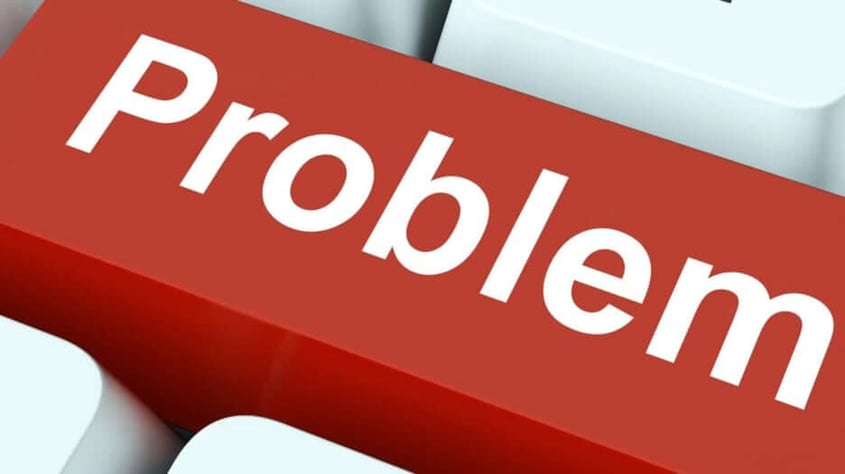3 years with Marketing Automation: Lessons Learned
When we decided at Samsung that we were implementing marketing automation it was difficult to look for a similar implementation in Poland. Corporations were just crawling in this area, and almost all the implementations I was interested in were taking place abroad. Today the situation has changed significantly, not only corporations but also smaller companies are implementing marketing automation, and since colleagues from these companies often ask me whether it is worth it, I will try to answer just from the perspective of my personal experience.
You will find out how it happened that I became a fan of marketing automation, how good content marketing helped me mature into a final decision, and what I would have done differently and what I am proud of today.
The article is subjective, but not sponsored, so if I give names of products or manufacturers I do it only from the conviction that you might find such information useful.
Several years of content marketing
.jpg?width=845&height=475&name=kampania-userengage-1024x510%20(1).jpg)
You probably know from experience that in B2B purchasing processes can take several months. Mine took several years. I first encountered inbound marketing and marketing automation around 2009, and was listening to a presentation by a B2B marketing expert who was showing tools and methods for working with customers that I thought were yet to be developed. It turned out that hundreds of companies, mostly in the U.S. were using lead nurturing, segmentation, content marketing and it was yielding surprisingly good results.
At the time, the U.S. market was saturated with traditional marketing activities and companies were frantically searching for new, more effective B2B marketing methods. In Poland at the time, these traditional methods worked quite effectively, so marketing automation was of little interest to many people.
Fortunately, Google was already on the market and contained quite an interesting set of results for the keyword marketing automation. Reading blogs, downloading e-books , attending webinars, I became a target of the most advanced, automated content marketing activities because they were carried out by the manufacturers of marketing automation tools.
Only it was content marketing with a capital "C". The information was chosen to first familiarize me with basic concepts such as inbound marketing, lead nurturing, digital body language, lead scoring and many others. The product information was sort of in the background. Since the information was very valuable to me I shared my data in return, building my own lead scoring.
I can completely honestly confirm that 90% of the theoretical knowledge I gained about marketing automation came from the marketing materials of the manufacturers of these tools. For me, this is the absolute pinnacle of content marketing - sharing for free knowledge that customers are willing to pay for. After that, I probably bought all the books on the subject, but I didn't read anything in them that wasn't at least briefly discussed in the e-books, blogs or podcasts of marketing automation software manufacturers.
I took the opportunity

In the course of this education of mine, I received an offer to create a B2B marketing department at Samsung, and I thought it would be great to build it based on modern tools and contemporary knowledge of B2B marketing. Literally after a few months, I learned that the headquarters was considering implementing marketing automation and was looking for a local office to test it out for myself. My skin had long been ready for such a test, so Samsung's Polish office became the first country in Europe and probably the second in the world to implement marketing automation principles and tools. The choice fell on Eloqua, which belongs to Oracle. I will immodestly add that I contributed to this, because it was the Eloqua marketers who for several years shared their knowledge with me, patiently waiting until it was time to sell. They lived to see it, because instead of bombarding me with offers and discounts, they made sure that I became a perfectly educated customer.
How to sell Marketing Automation?
The fact that we were a test country only made colleagues from other offices watch us closely. This was a fully commercial implementation. So I had to build a business case, convince managers at Samsung that we needed something like marketing automation and that it would bring a return on investment. This was difficult because most of them hadn't heard of marketing automation before and associated it with spam in the mailbox. At the beginning of my adventure with marketing automation, I had to figure out how to sell this tool to internal decision makers.
Fortunately, they were persuaded and more than 3 years ago we completed one of the first corporate implementations of marketing automation in Poland.
The cloud is fast to implement
The first thing that surprised me was the implementation time. Knowing the pace of corporate CRM implementations, I expected several months of hard work. Eloqua was implemented in 4 weeks, half of which were automated processes that ran in the background, basically without our intervention. This is the value that cloud computing gives - there is no work on the infrastructure, the burden on the IT department was minimal - it came down to security and some internal procedures.
No content strategy

After a successful and fairly quick deployment and several days of training, we went on the attack, but quickly found that we were out of ammunition. To use a less warlike comparison, we had a super car, but we ran out of fuel. That fuel is content. It quickly dawned on us that we had a whole lot of pure sales content, while we lacked the expert material that would make their audience want to engage with our beautifully automated campaigns.
Today, to anyone who asks what is the most important thing in marketing automation, I answer precisely that it is content strategy. I consciously say content strategy and not content itself, because when using marketing automation you have to constantly create content with the right parameters - tailored to your audience's profile, their stage in the decision-making process, their role, their preferences, etc. If you don't have developed rules for content planning, production and promotion, you will quickly stop your marketing machine. You will run out of fuel.
learned this from my own mistakes, today content strategy is quite well described. I recommend here Igor Bielobradek's blog and podcasts, who is very knowledgeable in this area.
I also wrote an article on the subject myself as part of the ABCs of B2B Marketing, a series of articles I create for Marketerplus.
Content is the currency you exchange for customer knowledge. If it's useful, the customer will trade it for data about themselves. Of course, no one is going to give you their data in exchange for a product brochure, which is why it's so important to properly profile the customer and provide the content they want.
In my case, one of the most useful resources turned out to be tips on how to build a business case for marketing automation. Wanting to convince decision makers in my organization to invest, I was looking for examples, templates, something I could build on. Of course, Eloqua Producer has such material in its resources. This is an example of knowing the specifics of B2B purchasing processes. It's not enough to convince one person, you also need to help them push the project through the organization.
The initial lack of a content strategy was probably the most serious mistake I made. Once it was corrected, the first successes and even industry awards followed. But about that in the next part. If you are to remember one sentence from this article let it be: marketing automation feeds on content - even the best automation won't help in the absence of good content.
In the second part, I'll talk about how we test whether marketing automation actually works, the real benefits of this implementation, and what you should take care of before you start automating your B2B marketing.
And what were your beginnings with marketing automation like? I'd appreciate your comment, opinion or suggestion.




